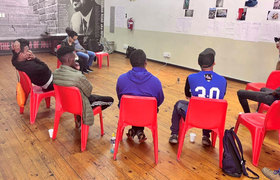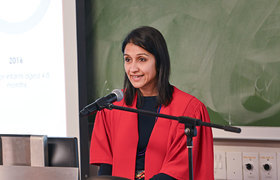Parents co-create exhibition to redefine and inform care policies
07 October 2025 | Story Thandile Xesi. Photo Lwando Nteya. Read time 6 min.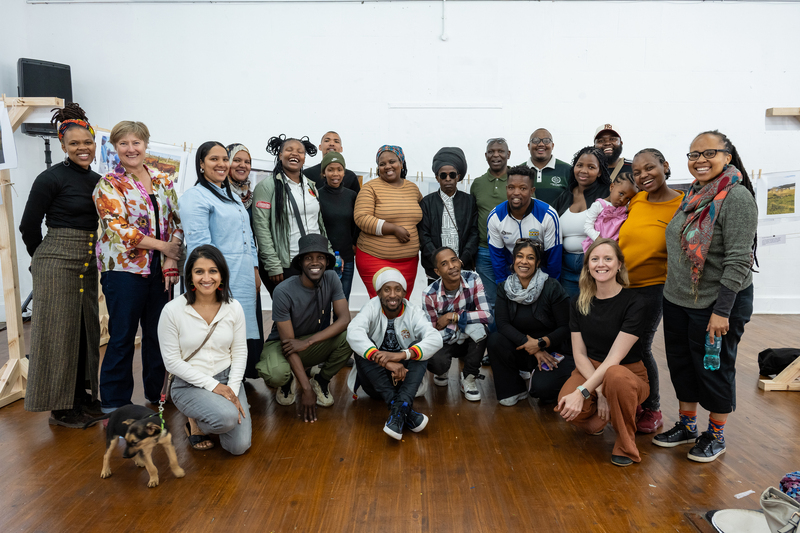
The University of Cape Town’s (UCT) sharing The Motherload photovoice project is breaking new ground in redefining care and challenging gender norms to inform care policies. By involving mothers and fathers as co-researchers, the initiative seeks to ease the heavy burden of unpaid domestic work – termed “the motherload” – and create a more equitable society.
In 2023, a group of mothers from low-income households co-created a powerful exhibition reflecting their experiences of unpaid work. The research project, which is part of UCT’s Vision 2030 Grand Challenges Programmes and Pilot Projects, aimed to generate knowledge not just in Cape Town but nationwide. Mothers emphasised that men must be included in these conversations to end male patriarchal domination, share the burden of care work and inform care policies.
They continued the work with the mothers under the Scaling Care innovations in Africa Programme, funded by the International Development Research Centre and Global Affairs Canada (IDRC). As part of the scaling project, a group of fathers joined. Under the skilled facilitation of lead methodologist, Professor Yanga Zembe, both the mothers and fathers used photographic images, symbols and creative methods to understand the complexities and challenges of unpaid work, and the role that stakeholders can play in addressing them. The project culminated in a co-created exhibition, which premiered on 18 September, and will run until 15 October 2025 at the Iziko Gallery Annex. This will provide a platform for parents to challenge policy makers and advocate for systemic change.
Co-creation at the heart of The Motherload project
Led by Professor Ameeta Jaga from UCT’s School of Management Studies, The Motherload project positions mothers and fathers not just as passive participations, but as co-researchers who shape knowledge production.
“Mothers and fathers have been a very key part of this project and have been positioned as experts of their own lived realities,” said Professor Jaga.
“This is the kind of transformative work that should define who we are as an institution.”
Professor Suki Goodman, the dean of the Faculty of Commerce, echoed this view.
“The Motherload project has shown what true co-creation looks like; citizen science; indigenous knowledge; knowledge that is so powerful that is changing and informing policy conversation,” Professor Goodman said.
“For UCT to be the highest rated university on the continent and a player on the world stage, I believe this is the kind of transformative work that should define who we are as an institution.”
Parents as knowledge producers
Curated by UCT alumnus, Thandiwe Msebenzi, together with the project’s mothers and fathers the exhibition transformed the Iziko Gallery Annex into a “living clothesline of stories,” with photographs and narratives strung together with wool.
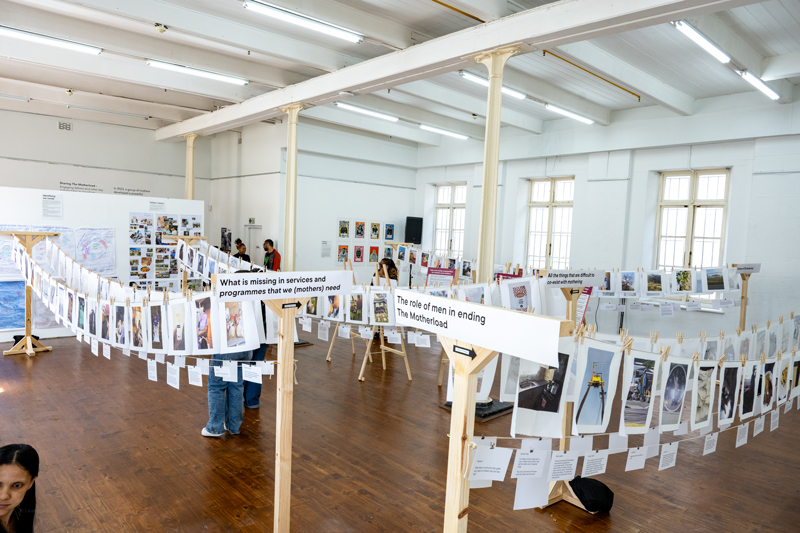
“This exhibition would have not been made possible without the mothers and fathers. It is they who made this exhibition,” said Msebenzi.
Eighteen participants – nine mothers and nine fathers – co-created the showcase.
One male participant used an image of a cracked kitchen tile to highlight women’s pressures at home.
“This tile, fractured in many places, represents the mental load women carry in their homes. Even with multiple cracks, it remains in place, just as women do. People continue to step on it, usually in the kitchen – a reminder of how their struggles are overlooked, even as the pressure never stops.”
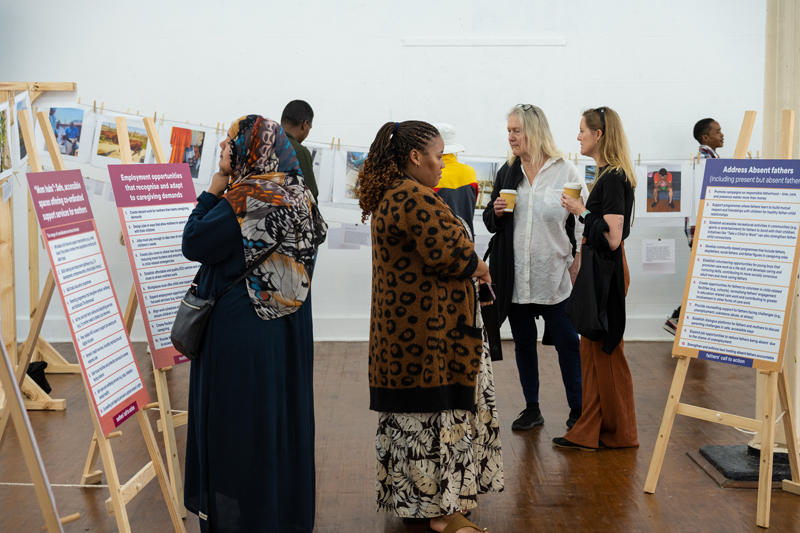
Another male participant used an image of a pinafore to reflect on cultural barriers, as one of the factors that prevent men from engaging in care work.
“Culture plays a huge role in how men view care work; it prescribes the roles for what should be done and what is normalised.”
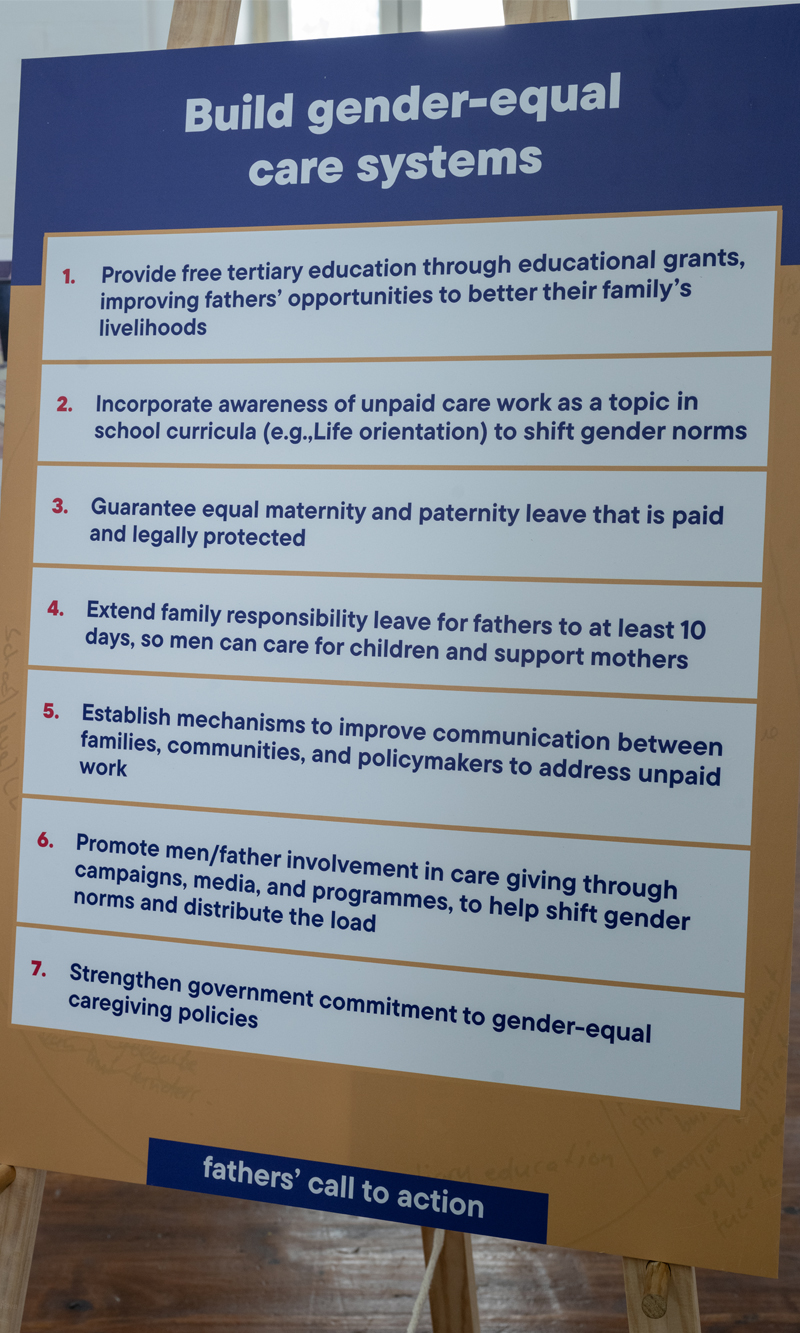
Mothers also shared their insights. One, highlighting gaps in services, used a photo titled “The Journey”, showing a clean, safe park.
“For me, it would be easier if it could be ensured that children’s play services are safe and secure.”
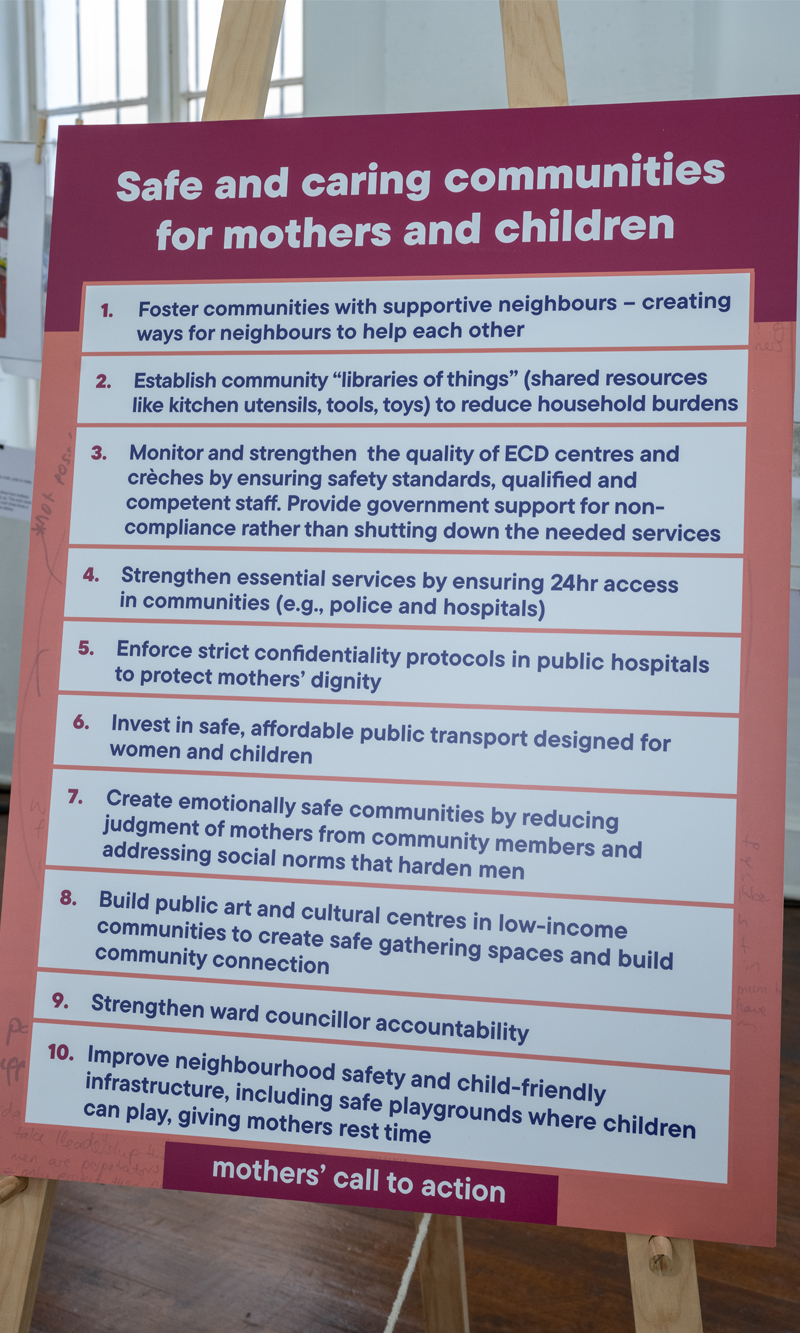
Another displayed a yellow spirit level titled “Straight Level”, calling for equal rights.
“I am saying that when I speak, I should be heard, and my skin colour should not determine whether I am listened to or not. Let us have equal rights, without relying solely on government structures. There should be no discrimination. We must be treated equally now.”
One mother reflected on the project’s personal impact. “I am a tree, because a tree can burn down and still stand up in the future. I am a tree.”
Impact on policy and community
Tristan Görgens, the director of the Policy, Strategy and Research Unit in the office of the Premier, Western Cape Government (a project partner), emphasised the importance of community storytelling.
“What matters most is not a biography that proves impact, but the story of how people’s lives change – how they create meaning, and how they make a difference in their own lives, their children’s lives, and their communities against incredible odds. It’s my job to bring awareness to these voices in places where they make people uncomfortable – to challenge officials and politicians to think in an integrated way.”
He added: “The Motherload project demonstrates the transformative power of co-created research, and how communities can lead conversations on gender equality and the distribution of care work in society.”
 This work is licensed under a Creative Commons Attribution-NoDerivatives 4.0 International License.
This work is licensed under a Creative Commons Attribution-NoDerivatives 4.0 International License.
Please view the republishing articles page for more information.







